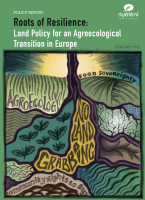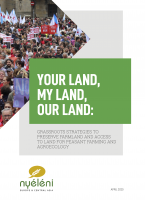Land for Agroecology in Europe
Regiones
The time has come for a transformation of Europe’s food systems. Small-scale food producers, peasants, community groups, environmental justice activists and others have been calling for years for a shift towards agriculture that nourishes communities, regenerates ecosystems, and provides decent and sustainable livelihoods. The concept of agroecology encompasses these ambitions, referring to the science, movement, and practice of working with nature to build food sovereignty. The climate crisis and the effects of the Covid-19 pandemic have only made it clearer how urgent such a transformation is.
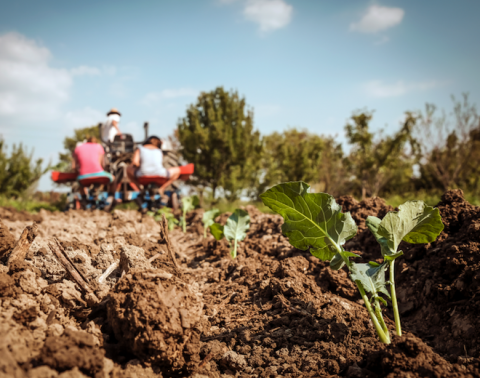
©TDL-Sandrine Mulas
Land is a key determinant of whether this vision can take root and thrive in Europe. Around the continent, over recent decades, farms have become larger and larger; land has become more and more scarce and expensive and been lost to urban development and non-farm uses; small-scale farmers have been squeezed off the land; and the systems that feed us have become more and more long-distance and centralized. This has led to the hollowing out of rural communities, to frustrated young and new farmers being unable to access land to farm, and to urban centers that are increasingly cut off from the landscapes and countrysides that sustain them.
But, a rich ecosystem of alternatives has also arisen, across Europe and at every level. Small-scale food producers and other traditional users of land have been struggling to regain accountable, democratic, and participatory control over land, in order to build the kind of food system we all need. From pastoralists in the Basque country developing new partnerships with municipalities to continue centuries-old herding practices, to the Scottish government giving communities important new rights to purchase abandoned, unused, or hoarded land; from Sami herders winning critical legal recognition for their land rights to activists fighting destructive gold mining in Roșia Montană, Romania, people across Europe are putting a new vision of land into practice.
Two key documents published by the Nyéléni Europe and Central Asia platform for Food Sovereignty, in collaboration with the European Innovative Land Strategies partnership, have collected these stories, and developed concrete and constructive policy recommendations based on them:
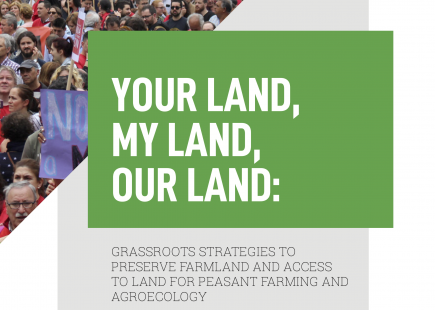
Your Land, My Land, Our Land: Grassroots strategies to preserve farmland and access to land for peasant farming and agroecology. This Handbook gathers, in rich detail, the grassroots struggles of dozens of communities around Europe that are striving to reclaim and restore their land, protect and regenerate their ecosystems, and preserve and revitalise their communities. A rich resource for activists and communities in action, the Handbook is divided into core strategies for successful land struggles, illustrated with concrete examples.
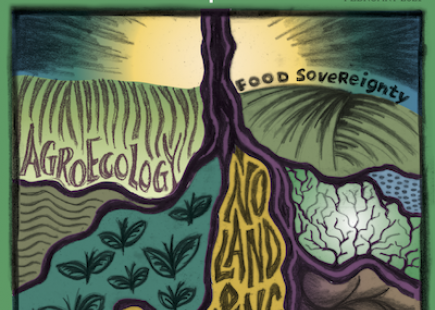
Roots of Resilience: Land Policy for an Agroecological Transition in Europe Drawing on the key findings from the Handbook, this policy report tackles the question of how governments at various levels - local, national, and regional - can meet and support grassroots movements from below. How can policy-makers address issues like the financialization of land and land grabbing? How can they support the vision and energy of small-scale peasant farmers and other communities striving to transform food systems? Looking across multiple scales this report unpacks some of the core issues for access to land in Europe, and some of the most innovative and effective solutions for tackling them.
